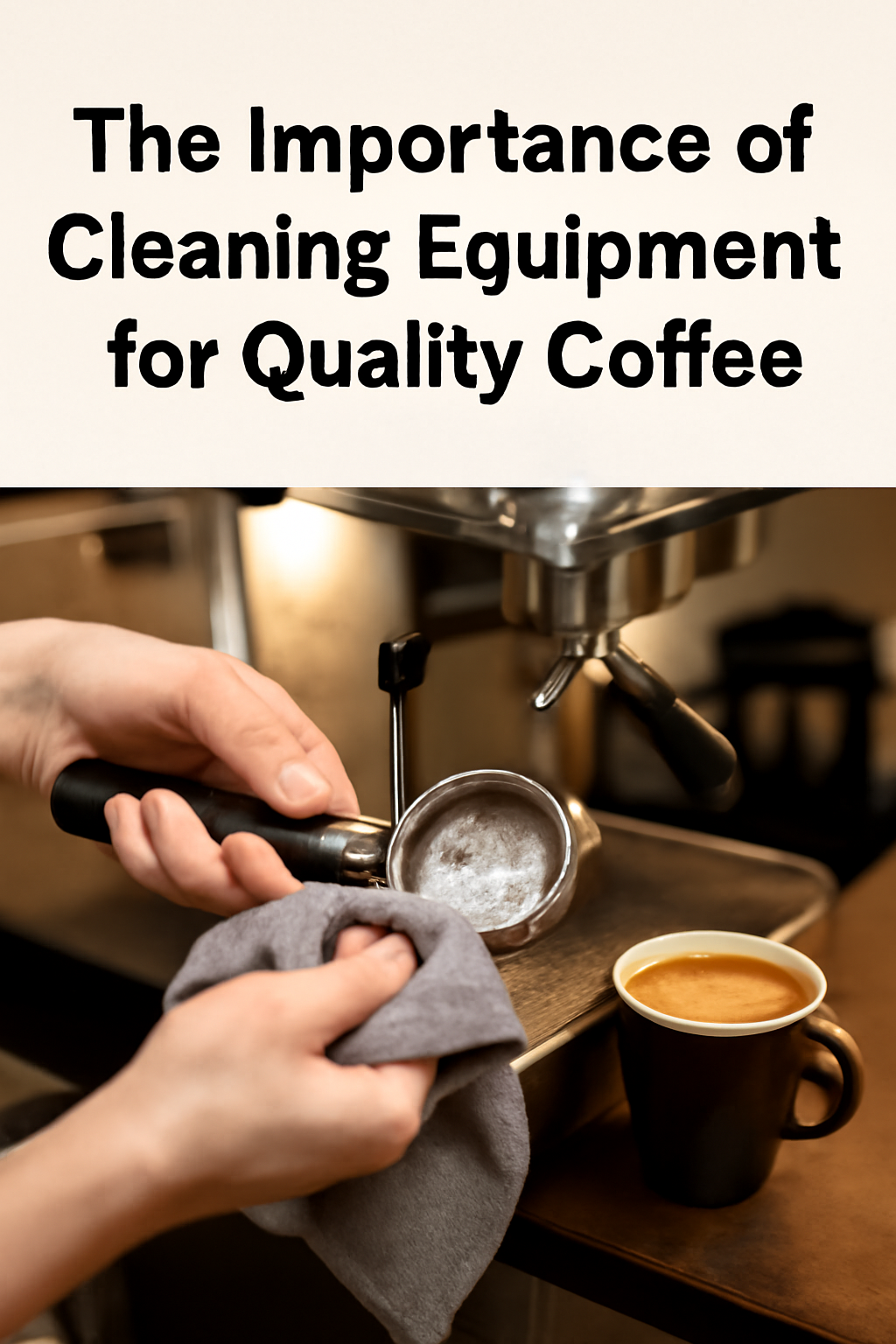When it comes to brewing the perfect cup of coffee, many factors contribute to the final flavor and aroma—from bean quality and grind size to water temperature and brewing time. However, one critical yet often overlooked factor is the cleanliness of your coffee equipment. Proper cleaning and maintenance of your coffee machines, grinders, and accessories are essential to ensure consistent quality, prevent off-flavors, and extend the lifespan of your equipment. This comprehensive guide explains why cleaning matters, how to clean various coffee tools effectively, and tips to maintain hygiene in your coffee preparation routine.
Why Cleaning Coffee Equipment Matters
Coffee equipment accumulates oils, residues, and mineral deposits with each use. These build-ups can alter the taste of your coffee, introduce bitterness, and mask the delicate flavors of freshly brewed coffee. Even small amounts of old coffee oils can become rancid, leading to unpleasant aromas and flavors in subsequent brews.
Moreover, dirty equipment can harbor bacteria and mold, posing health risks. Regular cleaning maintains not only flavor quality but also hygiene and equipment functionality.
Effects of Unclean Equipment on Coffee Quality
- Off-Flavors and Bitterness: Residual coffee oils oxidize and develop rancid flavors that spoil fresh coffee.
- Inconsistent Extraction: Blocked group heads or clogged filters affect water flow, leading to uneven extraction.
- Reduced Crema Quality: Espresso machines with dirty group heads produce less crema and thin shots.
- Slower Brewing Time: Scale buildup and clogged parts reduce machine efficiency.
Cleaning Coffee Machines
Espresso Machines
Espresso machines require daily and periodic cleaning:
- Daily Cleaning: Backflush the group heads using water and a cleaning detergent designed for espresso machines. Remove and clean portafilters, baskets, and steam wands thoroughly. Wipe down machine surfaces.
- Weekly Cleaning: Deep clean by using espresso machine cleaning powder to remove oils and residues.
- Descaling: Mineral buildup from hard water can damage boilers and heating elements. Descale the machine monthly or as recommended by the manufacturer using descaling solutions.
Drip Coffee Makers
Drip machines should be cleaned regularly:
- Daily Cleaning: Remove and wash filters, baskets, and carafes with warm soapy water.
- Descaling: Run a mixture of vinegar and water through the machine monthly to remove mineral deposits.
French Press and Pour-Over Equipment
Clean glass and metal parts immediately after use with warm water and soap. Remove coffee grounds promptly to prevent staining and mold growth.
Cleaning Coffee Grinders
Grinders accumulate coffee oils and particles that affect flavor:
- Daily Cleaning: Brush out residual grounds from burrs and hoppers. Use a vacuum if possible.
- Deep Cleaning: Remove burrs periodically and clean with specialized grinder cleaning tablets or warm water if removable. Avoid moisture on non-removable parts.
A clean grinder preserves bean flavor integrity and ensures consistent grind size.
Cleaning Accessories
- Milk Frothing Pitchers: Rinse immediately after use to prevent milk residue buildup. Wash daily with warm soapy water.
- Coffee Scoops and Containers: Wash regularly to prevent stale coffee contamination.
- Water Filters: Replace according to manufacturer recommendations to ensure water purity.
Tips for Effective Cleaning
- Use cleaning products specifically designed for coffee equipment.
- Avoid abrasive materials that can scratch surfaces.
- Follow manufacturer instructions to prevent damage.
- Schedule regular maintenance and stick to a cleaning routine.
- Train staff or household members on proper cleaning procedures.
Hygiene Best Practices in Coffee Preparation
Maintaining a clean environment enhances coffee quality:
- Wash hands before handling coffee or equipment.
- Use clean towels and cloths.
- Store coffee beans and grounds in airtight containers away from moisture.
- Keep work surfaces sanitized.
Benefits of Regular Cleaning
- Consistently better tasting coffee.
- Prolonged equipment lifespan.
- Reduced maintenance costs.
- Safer and more hygienic coffee preparation.
- Enhanced customer satisfaction in commercial settings.
Conclusion
Cleaning your coffee equipment is a non-negotiable part of brewing exceptional coffee. The investment in time and effort to maintain clean machines, grinders, and accessories pays off in the form of superior flavor, reliability, and safety. By integrating regular cleaning into your coffee routine, you ensure every cup reflects the true quality of your beans and brewing skills.

